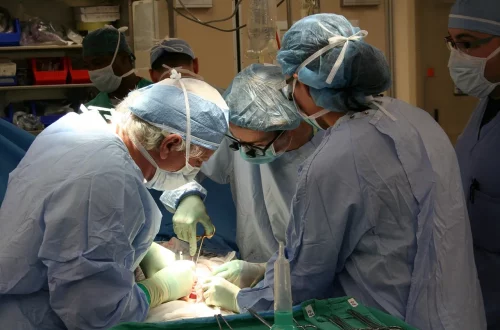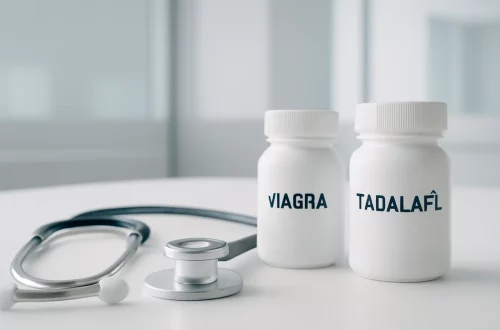
Can Guinea Pigs Have Potatoes? Understanding Their Dietary Needs
Guinea pigs are beloved pets known for their friendly nature and engaging personalities. As small herbivores, their dietary requirements differ significantly from those of other animals, making it crucial for pet owners to understand what foods are safe and beneficial for them. The food choices we make for our guinea pigs can directly impact their health and well-being. A balanced diet is essential, as it supports their digestive system and helps prevent diseases.
When it comes to feeding guinea pigs, many pet owners often wonder about various foods, including fruits, vegetables, and grains. One common question that arises is whether guinea pigs can safely consume potatoes. While potatoes are a staple in many human diets, they do not hold the same nutritional value for guinea pigs. Furthermore, the potential risks associated with feeding potatoes to these small rodents warrant careful consideration.
Understanding the dietary needs of guinea pigs involves appreciating their unique anatomy and physiology. These animals require a diet high in fiber, primarily derived from hay, alongside fresh vegetables and a limited amount of fruits. This natural diet is essential for maintaining their health and preventing digestive issues. As we delve deeper into this topic, we will explore the suitability of potatoes, the essential nutrients guinea pigs require, and the best practices for feeding them.
Understanding the Nutritional Needs of Guinea Pigs
Guinea pigs have specific dietary needs that are crucial for their overall health. As herbivores, their diet is primarily composed of high-fiber foods, which are vital for proper digestion and to maintain healthy teeth. The primary component of a guinea pig’s diet should be hay, particularly timothy hay or orchard grass, as these provide the necessary fiber that helps to wear down their continuously growing teeth.
In addition to hay, fresh vegetables should make up a significant part of their daily intake. Leafy greens such as romaine lettuce, kale, and cilantro are excellent choices. These vegetables not only provide hydration but also deliver essential vitamins and minerals. Guinea pigs are also known to require a source of vitamin C, as they cannot synthesize it themselves. Therefore, incorporating vitamin C-rich vegetables like bell peppers and parsley into their diet is crucial.
Fruits can be offered in moderation due to their high sugar content. Suitable fruits include strawberries, apples, and blueberries. However, these should only be provided occasionally to avoid potential weight gain and other health issues.
When considering the overall nutritional needs of guinea pigs, it is essential to avoid feeding them processed foods, grains, and starchy vegetables. Foods that are high in starch, like potatoes, can disrupt their digestive systems and lead to health complications. A balanced diet for guinea pigs should focus on high fiber, low sugar, and moderate water intake to ensure their well-being.
The Risks of Feeding Potatoes to Guinea Pigs
While potatoes are a common food in many households, they pose significant risks when it comes to guinea pigs. The primary concern is that potatoes belong to the nightshade family, which includes other plants that can be toxic to many animals. Raw potatoes, in particular, contain solanine, a naturally occurring toxin that can lead to severe health issues. Symptoms of solanine poisoning may include gastrointestinal distress, lethargy, and in severe cases, can be fatal.
Even cooked potatoes do not provide the necessary nutrients that guinea pigs need. Cooking alters the composition of the potato but does not eliminate the risks associated with feeding it to guinea pigs. Moreover, potatoes are high in starch and carbohydrates, which can lead to obesity and digestive problems in these small animals.
Another consideration is that guinea pigs have delicate digestive systems that thrive on high-fiber foods. Starchy foods like potatoes can disrupt the natural balance of bacteria in their gut, leading to gastrointestinal issues such as bloat and diarrhea. These conditions can be painful and may require veterinary intervention.
It is essential for guinea pig owners to prioritize foods that align with their pets’ dietary needs. Instead of potatoes, focus on providing an array of safe vegetables and high-quality hay. This ensures that your guinea pig receives the necessary nutrients without the added risks associated with inappropriate food choices.
Safe Alternatives to Potatoes for Guinea Pigs
Given the risks associated with feeding potatoes to guinea pigs, it is essential to explore safe and nutritious alternatives that can be included in their diet. Fresh vegetables are the cornerstone of a guinea pig’s diet, providing essential vitamins and minerals while also ensuring adequate fiber intake.
Leafy greens should be a primary focus. Vegetables such as kale, romaine lettuce, and dandelion greens can provide essential nutrients while being low in calories. These greens are also rich in vitamin C, which is vital for the health of guinea pigs. Offering a variety of leafy greens will not only meet their nutritional needs but also keep their meals interesting.
In addition to leafy greens, consider introducing bell peppers. These are particularly high in vitamin C and are generally well-received by guinea pigs. You can cut them into small pieces and offer them as a treat or mix them into their salads.
Another great option is cucumber, which is hydrating and low in calories. Cucumber slices can serve as a refreshing snack, especially during hot weather. Other safe vegetables include carrots, zucchini, and broccoli, which can be offered in moderation.
When introducing new vegetables, always do so gradually. Monitor your guinea pig’s reaction to ensure they do not experience any adverse effects. Fresh hay should always be available, as it serves as their primary source of fiber and aids in digestion.
Lastly, remember that while fruits can be offered occasionally, they should be limited due to their sugar content. Safe fruits include strawberries, blueberries, and apple slices (without seeds), which can be given as a rare treat.
Best Feeding Practices for Guinea Pigs
Establishing proper feeding practices is crucial for the health and well-being of guinea pigs. To ensure your pet thrives, it is essential to create a balanced diet that meets their specific nutritional needs while avoiding harmful foods like potatoes.
First and foremost, always provide unlimited access to fresh hay. This should be the foundation of their diet, as it promotes healthy digestion and helps maintain dental health. Timothy hay or orchard grass are excellent choices, and you can offer different types of hay to keep their diet varied.
When it comes to fresh vegetables, aim to introduce a wide range of options. A colorful salad made of different leafy greens and vegetables can provide essential nutrients and keep your guinea pig engaged during mealtime. Always wash vegetables thoroughly and remove any uneaten portions to prevent spoilage.
It’s also essential to establish a routine feeding schedule. Guinea pigs thrive on consistency, so try to feed them at the same times each day. Fresh water should always be available, as hydration is crucial for their overall health.
While it can be tempting to offer treats, moderation is key. Limit high-sugar fruits and avoid any processed foods. Instead, focus on healthy snacks that align with their dietary needs.
Lastly, always observe your guinea pig’s eating habits and overall health. If you notice any changes in their appetite, weight, or behavior, consult a veterinarian. Regular check-ups are also advisable to ensure your guinea pig remains healthy throughout their life.
In conclusion, understanding the dietary needs of guinea pigs is essential for their health and happiness. By prioritizing a balanced diet focused on high-fiber foods and safe vegetables, you can help your pet live a long and healthy life.
**Disclaimer:** This article is not intended as medical advice. For any health issues or concerns regarding your guinea pig, please consult a veterinarian.




